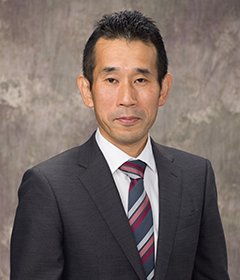Currently, armed conflicts continue between Israel and its neighbors, as well as between Russia and Ukraine, with no signs of resolution. In Sudan, military clashes have persisted for a year and a half, displacing over 12 million people both domestically and abroad, while more than 25.6 million—over half the population—face a severe food crisis[1]. Despite this humanitarian crisis, fighting continues. Violent extremism, such as Islamic radicalism, has surged globally, leading to record numbers of refugees and internally displaced persons. Meanwhile, populism is rising in host countries, fueling movements to reject refugees. We are living in the worst crisis since World War II. What are the causes, and is there a path to resolution? This paper will focus on the relationship between the Western countries that have traditionally played a leading role in the international community—referred to as the Global North—and other nations, known as the Global South, and discuss options for the future.

Why Can't We Stop the Current Crisis?
(1) Decline of the Global North
The first reason the crisis has continued is the decline of the Global North's international influence, marking a shift from a unipolar to a multipolar world. China has actively expanded into Africa and the Middle East, driven by economic growth and the development of its own networks[2]. Today, China ranks as the top trading partner for 120 countries, and it has signed Belt and Road Agreements with 140 nations[3]. Russia is also seeking to expand its influence in Africa and the Middle East through mercenary businesses and military support. Additionally, countries like Saudi Arabia, the United Arab Emirates (UAE), Turkey, and India have gained economic power and are actively building relationships to enhance their influence. The G7's share of global gross domestic product (GDP) has fallen from 65% in the 1980s to 40% now[4], with the BRICS countries and other members of the Global South gaining prominence. In the 1990s and early 2000s, the Global North countries like the United States could exert significant influence worldwide. However, it is now nearly impossible for the Global North to unilaterally resolve international issues.
The second reason is that the Global North can no longer refrain from actions that are derided as "double standards." In the conflict between Ukraine and Russia, while the Global North has provided generous amounts of humanitarian aid to Ukrainian refugees, its response to Israel's attacks on Gaza has been criticized as inadequate by the Global South for failing to hold Israel accountable for not accepting recommendations from the International Court of Justice (ICJ)[5]. In Sudan, while there are criticisms regarding UAE's military support for RSF—a paramilitary group committing serious human rights violations—there are accusations that the U.S. is defending UAE through a "strategic partnership."[6]
The Global North has begun to actively build alliances with countries it perceives as beneficial amid its declining international influence. The foundations for these relationships have shifted away from shared values like democracy and the protection of human rights; thus, partnerships with even authoritarian regimes are prioritized. Furthermore, out of concern over potential breakdowns in alliances or cooperation, the Global North has become unable to stop partner countries' abuses, further emboldening such behaviors. CNN analyst Stephen Collinson said that "the U.S. is powerless" regarding Israel's disregard for the ICJ recommendations[7]. Richard Haass, President Emeritus of the Council on Foreign Relations in the U.S., pointed out that "the way we engage with allies and friendly nations needs reevaluation."[8]
(2) The Rise of "Power-Based Domination" in International Society
The third reason is that under these circumstances, "power-based domination" is becoming a global trend. The Global North’s prioritization of self-interest over shared values in building cooperative relationships has led to tolerance of authoritarian actions and human rights violations by allied nations. This has created an environment where human rights repression and state authoritarianism are spreading worldwide. Governance based on "internationally agreed laws/systems," such as international humanitarian law or the ICJ, is becoming hollowed out; "power-based domination," such as authoritarianism, coups, and the surge of violent extremism, is increasingly becoming a principle for maintaining international order.
Additionally, military force is being heavily utilized as a tool for maintaining order, resulting in significant increases in military spending globally. According to the Stockholm International Peace Research Institute (SIPRI), world military expenditures have reached record levels for nine consecutive years[9]. This surge in military spending pressures government spending on economic growth and social welfare programs, leading to inadequate public services for poverty alleviation, support to socially vulnerable people, and addressing inequality—fostering social unrest and contributing to rising populism. This trend affects both the Global North and the Global South alike; economic stagnation and social instability promote the emergence of conflicts and forcible displacement. Moreover, the influx of refugees increases tensions within the Global North.
In summary, the decline of the Global North’s influence combined with double-standard behaviors enhances trends towards "power-based domination," creating a vicious cycle that obstructs stable development and peace globally.

(3) Rapid Decline in Support for the Global North
In this context, the Global South’s support for the Global North is rapidly declining. A survey conducted by the Arab Center for Research & Policy Affairs in Arab countries indicated that following Israel’s attacks on Gaza, the country deemed most threatening to peace and stability in Arab regions was not Israel, but rather the United States[10]. Furthermore, a survey by South Africa's Ichikowitz Family Foundation among youth in 16 African countries showed that China received higher ratings than both the U.S. and EU as a country providing a positive influence in their countries and the region[11]. Crucially, not only is the view of the Global North declining, but the Global North appears unaware of this reality.
What Should the Global North Do?
As tensions rise with China and Russia, there are efforts within the Global North to pursue "decoupling," aiming to build supply chains and social systems detaching from these nations[12]. However, can they survive through decoupling? The Global South’s opinion of the Global North is falling sharply. Additionally, newly empowered economies, including China and Russia, are actively building relationships with various nations; countries within the Global South are deepening cooperation with those they perceive as most beneficial or accepting multiple offers. If things continue as they are now, there is a possibility that the Global North itself will become a minority in the world and be left behind by international systems[13].
First, it is necessary to rectify this situation by ensuring compliance with "internationally agreed laws/systems." It should be clarified that the "rules-based order" differs from adherence to “internationally agreed laws/systems”. Stefan Lehne, Senior Fellow at Carnegie Europe, pointed out that "the U.S.'s actions regarding international rules are selective," noting its refusal to ratify the Rome Statute of the ICC while attempting to promote a "rules-based order" as an alternative to international law[14]. What must be upheld is adherence to "internationally agreed laws/systems," represented by institutions like the United Nations (UN). Amid current crises causing dysfunction within international systems[15]—including those led by UN—it is essential to defend and strengthen these systems built over time. There are no enforcement agencies, like a military or police, governing international society; therefore, strong will is necessary to uphold agreed-upon systems.
Second, active engagement in reforming existing international systems is required since some frameworks can no longer adapt to the changing times. For instance, only the five permanent members of the UN Security Council hold veto power—a privilege unchanged since UN's founding nearly 80 years ago—despite significant changes in major nations' economic power or influence making it unreasonable now[16]. Countries in the Global South criticize the Global North’s resistance to reforms to UN systems to protect its vested interests[17]. Creating a fairer international system that meets contemporary needs requires proactive reform efforts.
Third, it is essential to abandon "power-based domination," while promoting dialogue and confidence-building as methods for conflict resolution. Relying on power alone leads only to endless military escalation met with challenges against such power; killing the leaders of Hamas or Hezbollah merely creates hatred while giving rise to new leaders. Amidst the trend toward military might and diminished dialogue, efforts should be made to promote dialogue and confidence-building aimed at preventing and stopping conflicts.
Fourth, it is crucial to understand the issues facing countries in the Global South and provide support for their resolution. Many nations within the Global South that emerged in the 20th century still suffer from colonial legacies, such as ethnic groups divided or forced together by national boundaries made during the time of colonization, and face various governance challenges today. Moreover, many challenges international society faces today—such as climate change or human migration—cannot be solved by any single nation alone; collective action becomes imperative. It is necessary to tackle these challenges facing the Global South through Official Development Assistance (ODA) to or public-private partnerships with the Global South.

What Should Japan Do?
Japan has built a strong relationship with America, and maintaining this relationship remains important. However, merely following the U.S.'s lead will no longer suffice, given the current criticisms directed towards America from various fronts within the Global South. As a good partner to America, Japan should provide necessary advice while fostering dialogue, ensuring both nations remain trusted by the rest of the world.
Furthermore, Japan should strengthen relations with countries in the Global South, enhancing mutual trust. Having previously earned trust through its unique peace diplomacy and ODA, Japan cannot afford to be complacent now as others actively seek stronger ties with these nations. Japan must constructively build trustworthy relationships while promoting cooperation more vigorously than before; doing so remains essential if Japan wishes to continue being an important international actor in the future.
This paper was prepared based on information available as of October 10,2024. The views expressed herein represent those of individual author alone, not necessarily reflecting official views held by affiliated organizations.
(2024/10/31)
Notes
- 1 Regarding the recent situation in Sudan, please refer to my article “Sudan’s most serious humanitarian crisis in 40 years: Is there a way to a ceasefire and resumed aid?”, International Information Network Analysis (IINA), August 5, 2024.
- 2 Laura Chen and Joe Cash, “China offers Africa $51billion in fresh funding, promises a million jobs,” Reuters, September 5, 2024.
- 3 Robert M. Gates, “The Dysfunctional Superpower: Can a Divided America Deter China and Russia?”, Foreign Affairs, November/December 2023.
- 4 Stefan Lehne, “The Rules-Based Order vs. the Defense of Democracy,” Carnegie Europe, September 18, 2024.
- 5 Azmi Bishara, “Gaza: Moral Matters in Hard Times,” Al-Muntaqa, Vol 7 Issue 15, February 2024.
- 6 Robbie Gramer and Jonathan Lemire, “It became our foreign policy priority whether we liked it or not,” Politico, October 7, 2024.
- 7 Stephen Collinson, “What Israel’s ground operation into Lebanon drives home about America,” CNN, October 1, 2024.
- 8 Richard Haass, “The Trouble With Allies: America Needs a Playbook for Difficult Friends,” Foreign Affairs, August 19, 2024.
- 9 Nan Tian et al, “Trends in World Military Expenditure, 2023,” SIPRI, April 2024.
- 10 “Arab Public Opinion about the Israel War on Gaza,” Arab Center for Research & Public Studies, January 10, 2024, p.17.
- 11 Ichikowitz Family Foundation, “African Youth Survey 2024,” 2024, pp. 32-40.
According to this report, the percentage of respondents who said countries would have a "positive impact" was 82% for China, 79% for the United States, and 73% for the EU. - 12 Roland Benedikter, “The World Isn’t Deglobalizing. It’s Reglobalizing,” World Politics Review, June 4, 2024.
- 13 The term "Global Majority" has gained traction to refer to people who belong to the Global South. See below as an overview of the concept of "Global Majority":
Nadine White, “What is ’Global majority’ and why is it replacing ‘BAME’,” The Independent, May 17, 2024. - 14 See End Note No.4
- 15 Please refer to my article “Dysfunctional Global System: How to overcome the crisis of peacebuilding and humanitarian assistance?”, International Information Network Analysis (IINA), May 10, 2024.
- 16 Kishore Mahbubani, “UN credibility depends on adjusting veto rights to match shift in global power,” Financial Times, August 11, 2024.
- 17 See End Note No.4

